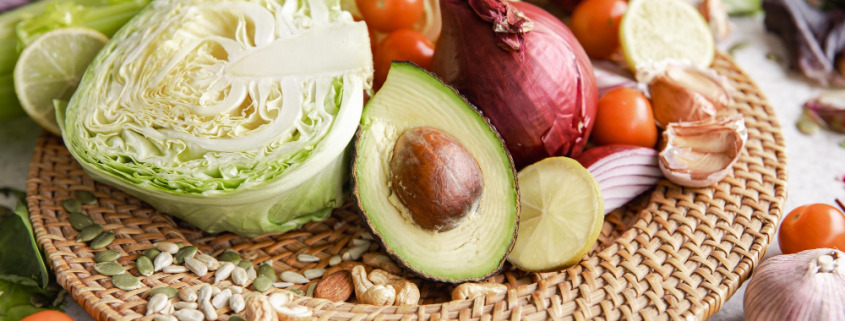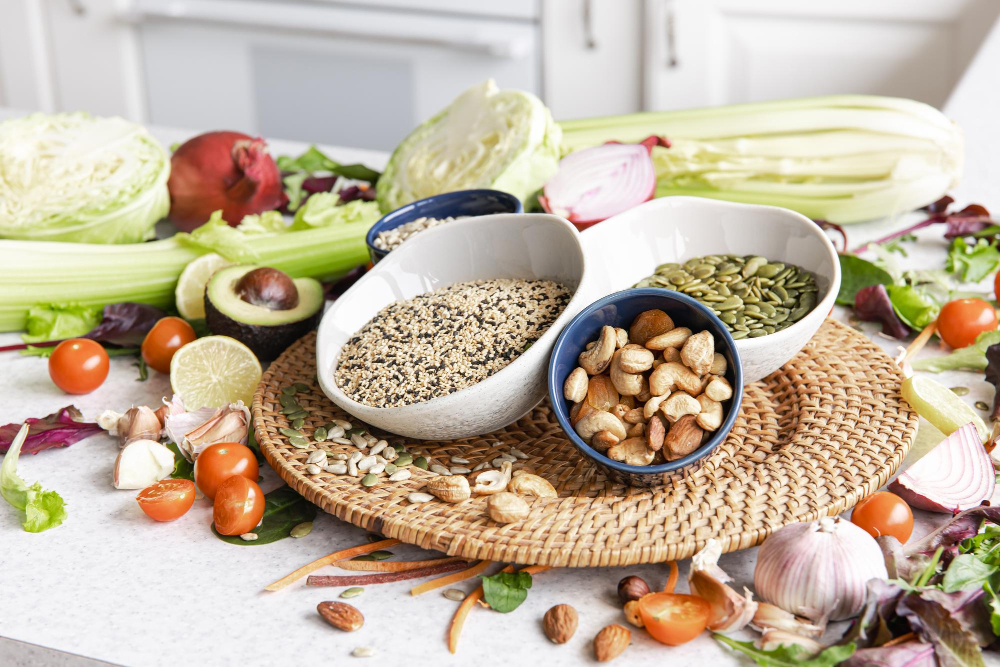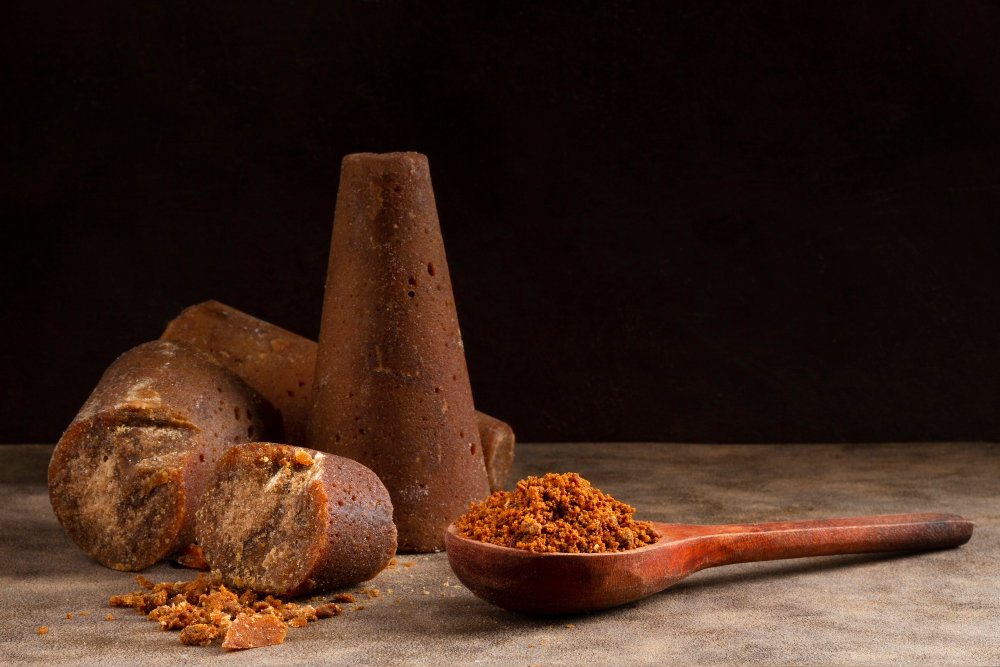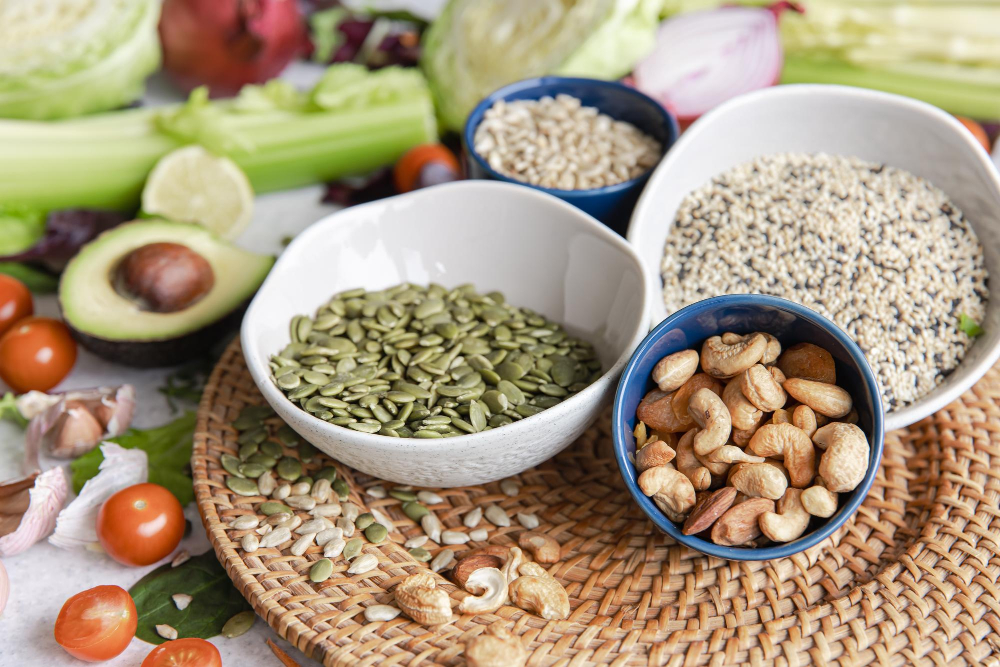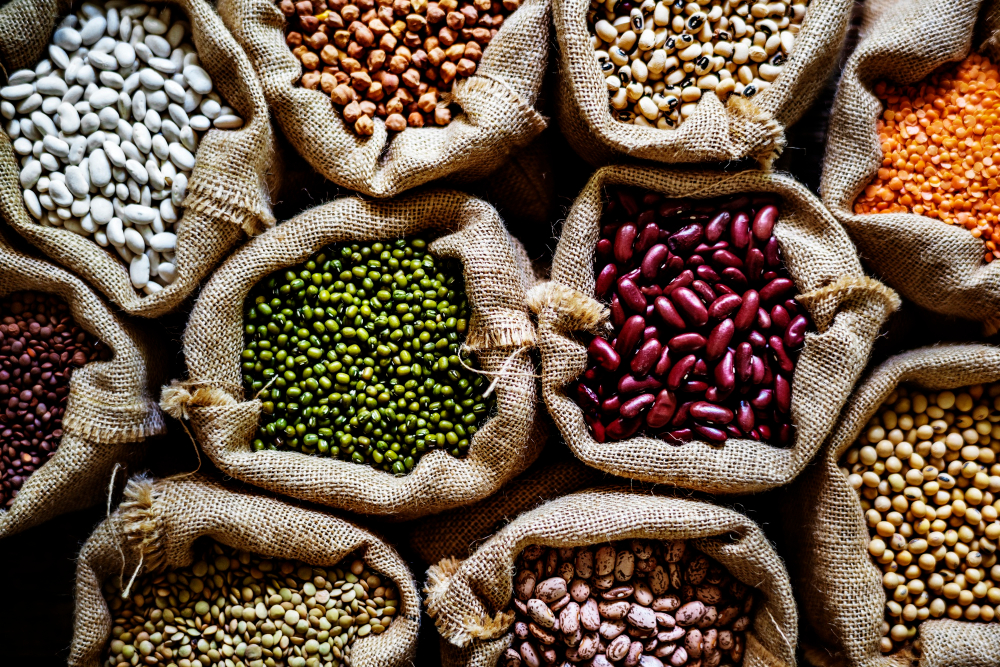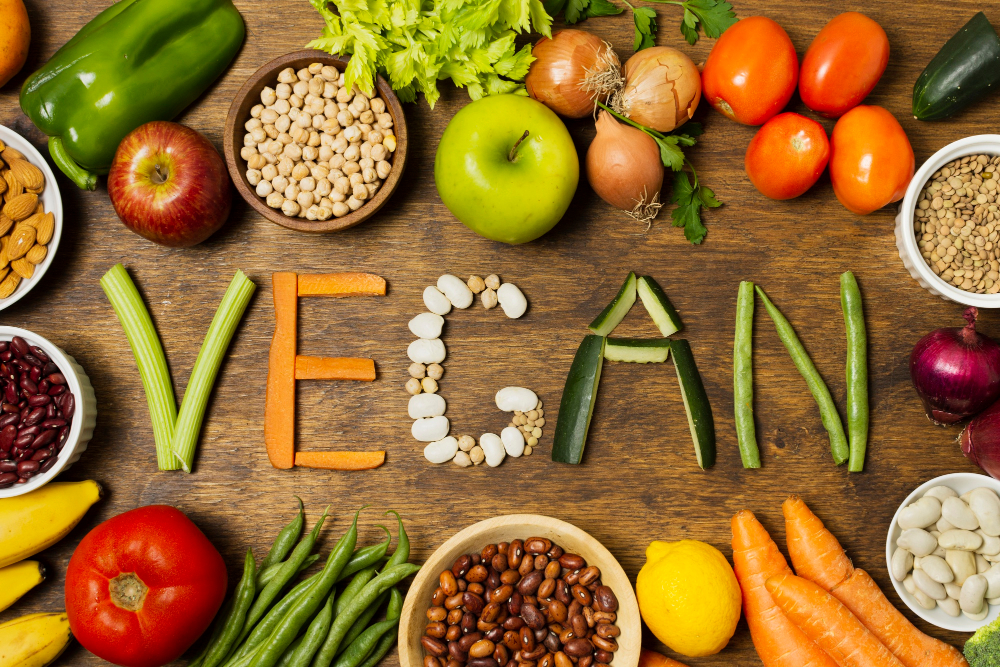The Power of Superfoods: Enhancing Performance and Immunity
Superfoods have garnered immense attention in recent years for their potential to boost performance and fortify the immune system. Understanding the true impact of these nutritional powerhouses on our health is crucial in achieving overall well-being.
In this article, we will explore the fascinating world of superfoods and delve into their profound effects on our bodies, specifically focusing on their role in enhancing both physical performance and immune function.
Section 1: Superfoods for Optimal Performance
Fueling Your Body for Success: The Role of Superfoods in Enhancing Physical Performance
In the pursuit of peak performance, athletes and fitness enthusiasts are always seeking ways to optimize their training and nutrition. Superfoods offer a natural and effective solution by providing a plethora of essential nutrients, such as vitamins, minerals, antioxidants, and phytochemicals, that support overall vitality and stamina. By incorporating these nutrient-dense foods into their diets, individuals can experience improved endurance, quicker recovery, and increased strength, ultimately leading to enhanced physical performance.
Chia Seeds: Nature’s Secret to Endurance and Stamina
Among the notable superfoods, chia seeds stand out for their exceptional nutritional profile. These tiny seeds are packed with omega-3 fatty acids, fiber, and protein, making them an excellent choice for sustaining energy levels during prolonged physical activities. Chia seeds also aid in maintaining hydration and reducing inflammation, allowing athletes to push their boundaries without compromising their performance.
Quinoa: The Powerhouse Grain for Sustained Energy
Quinoa, often referred to as the “super grain,” is a staple for individuals seeking sustained energy and muscle support. This gluten-free grain is abundant in complex carbohydrates, which provide a steady release of energy throughout the day. Additionally, quinoa contains all nine essential amino acids, making it a complete protein source that aids in muscle repair and recovery post-exercise.
Beetroot: The Nitric Oxide Booster for Improved Athletic Performance
Beetroot’s reputation as a superfood lies in its ability to increase nitric oxide production in the body. Nitric oxide is a vasodilator that helps widen blood vessels, improving blood flow and oxygen delivery to muscles. This boost in oxygenation enhances endurance, reduces fatigue, and increases overall exercise performance, making beetroot a valuable addition to the diets of athletes and fitness enthusiasts.
Wild Salmon: Omega-3 Rich Fish for Muscle Recovery and Inflammation Reduction
As a superfood from the sea, wild salmon is renowned for its abundance of omega-3 fatty acids. These essential fats play a pivotal role in reducing inflammation and supporting muscle recovery after intense workouts. The anti-inflammatory properties of omega-3s also promote joint health, allowing individuals to engage in physical activities with greater ease and comfort.
Spinach: The Mighty Leafy Green for Enhanced Oxygenation and Strength
Popeye’s favorite food holds true to its reputation as a nutritional powerhouse. Spinach is loaded with iron, which is critical for red blood cell production and oxygen transport in the body. Increased oxygenation enhances energy levels and stamina during physical exertion, enabling individuals to perform at their best. The high levels of vitamins and minerals in spinach also contribute to stronger bones and muscles, supporting overall physical strength.
Section 2: Superfoods and Immunity: The Defender Diet
Building a Strong Defense System: The Impact of Superfoods on Immune Health
A robust immune system is vital in safeguarding our bodies against infections and illnesses. Superfoods play a pivotal role in supporting immune function by providing a wide array of nutrients that boost the body’s defense mechanisms. The unique combination of vitamins, minerals, antioxidants, and phytochemicals in these foods fortifies the immune system, reducing the risk of infections and promoting overall wellness.
Turmeric: The Golden Spice for Immune Support and Inflammation Control
Turmeric, the golden spice widely used in traditional medicine, contains a potent compound called curcumin. Curcumin has strong anti-inflammatory and antioxidant properties, which aid in reducing inflammation and neutralizing harmful free radicals in the body. By bolstering the immune system, turmeric contributes to a healthier and more resilient body, capable of fending off infections and diseases.
Garlic: The Natural Antibacterial and Antiviral Bulb for Immune Enhancement
Garlic’s reputation as a potent immune booster dates back centuries. This pungent bulb is rich in allicin, a powerful compound known for its antibacterial and antiviral properties. Regular consumption of garlic helps the body ward off infections and strengthens its natural defense mechanisms, making it an essential addition to the defender diet.
Ginger: The Immunity-Boosting Root for Fighting Infections
Another gem from nature’s arsenal, ginger, is celebrated for its immune-boosting properties. Gingerol, the bioactive compound in ginger, exhibits potent anti-inflammatory and antioxidant effects. These properties contribute to improved immune function, making ginger a valuable ally in warding off infections and maintaining optimal health.
Citrus Fruits: The Vitamin C Powerhouse for Immune Resilience
Citrus fruits, such as oranges, lemons, and grapefruits, are renowned for their high vitamin C content. Vitamin C is an essential nutrient that stimulates the production of white blood cells, the frontline warriors of the immune system. Regular intake of vitamin C-rich citrus fruits enhances immune resilience, reduces the severity of colds and infections, and speeds up recovery.
Yogurt: The Probiotic Superfood for a Healthy Gut and Immune Function
The gut plays a critical role in maintaining a robust immune system, and yogurt is a superfood that supports gut health. Yogurt contains probiotics, beneficial bacteria that aid in maintaining a balanced gut microbiome. A healthy gut microbiome promotes proper digestion and nutrient absorption, which, in turn, supports optimal immune function.
Section 3: Superfoods for Faster Recovery and Repair
Recovering Like a Champion: How Superfoods Aid in Post-Workout Recovery
After intense physical activities, the body requires adequate nutrients to recover and repair. Superfoods offer a natural and effective way to accelerate recovery, reduce muscle soreness, and optimize the body’s repair processes. By incorporating these foods into their post-workout nutrition, athletes and fitness enthusiasts can experience faster recovery and improved performance in subsequent sessions.
Pineapple: The Tropical Fruit Packed with Bromelain for Muscle Repair
Pineapple contains bromelain, an enzyme known for its anti-inflammatory properties. Bromelain aids in reducing muscle inflammation and soreness, facilitating faster recovery after intense exercise. By including pineapple in their post-workout meals, individuals can expedite muscle repair and feel fresher for their next training session.
Bone Broth: The Collagen-Rich Elixir for Joint Health and Recovery
Bone broth is a superfood that has gained popularity for its impressive collagen content. Collagen is essential for joint health and tissue repair, making bone broth a go-to food for athletes and fitness enthusiasts seeking optimal recovery. Additionally, bone broth provides an abundance of minerals that support overall bone strength and resilience.
Acai Berry: The Antioxidant Superfood for Reducing Exercise-Induced Oxidative Stress
Intense exercise can lead to oxidative stress in the body, causing cellular damage. Acai berry, a small but mighty fruit, is rich in antioxidants that combat oxidative stress and protect the body’s cells from damage. Including acai berry in post-workout meals helps reduce exercise-induced inflammation and supports cellular repair.
Section 4: Incorporating Superfoods into Your Diet: Practical Tips and Delicious Recipes
Making Superfoods a Part of Your Daily Routine: Tips for Easy Integration
Incorporating superfoods into your daily diet doesn’t have to be complicated. Simple strategies such as adding them to smoothies, salads, or snacks can elevate your nutritional intake and optimize your overall health. Embrace the versatility of these foods and explore different ways to enjoy them to reap their full benefits.
Superfood Smoothie Recipes to Kickstart Your Day with a Boost
Start your day with a nutrient-packed superfood smoothie that will energize you and set the tone for a productive day. Combine a variety of superfoods such as spinach, chia seeds, berries, and almond milk to create a delicious and nourishing smoothie that fuels your body with essential vitamins and minerals.
Wholesome Superfood Salads to Power Your Lunch
Lunchtime provides an excellent opportunity to indulge in a wholesome superfood salad. Combine leafy greens, quinoa, avocado, and a mix of colorful vegetables to create a nutrient-dense and satisfying meal. Top it off with a zesty dressing made with turmeric and ginger for an added immune-boosting punch.
Nourishing Superfood Snacks for Sustained Energy Throughout the Day
Maintain steady energy levels throughout the day with nourishing superfood snacks. Opt for a handful of mixed nuts and seeds, rich in healthy fats and protein, to keep hunger at bay and support sustained energy. Alternatively, indulge in a piece of dark chocolate with acai berry, providing a sweet treat with a powerful antioxidant boost.
Superfood Dinner Delights: Nutrient-Packed Meals for Optimal Performance and Immune Support
End your day on a high note with a superfood-rich dinner that nourishes your body and aids in recovery. Prepare a meal featuring wild salmon, quinoa, and a side of garlic-roasted vegetables for a flavorful and nutrient-dense dinner that supports both performance and immunity.
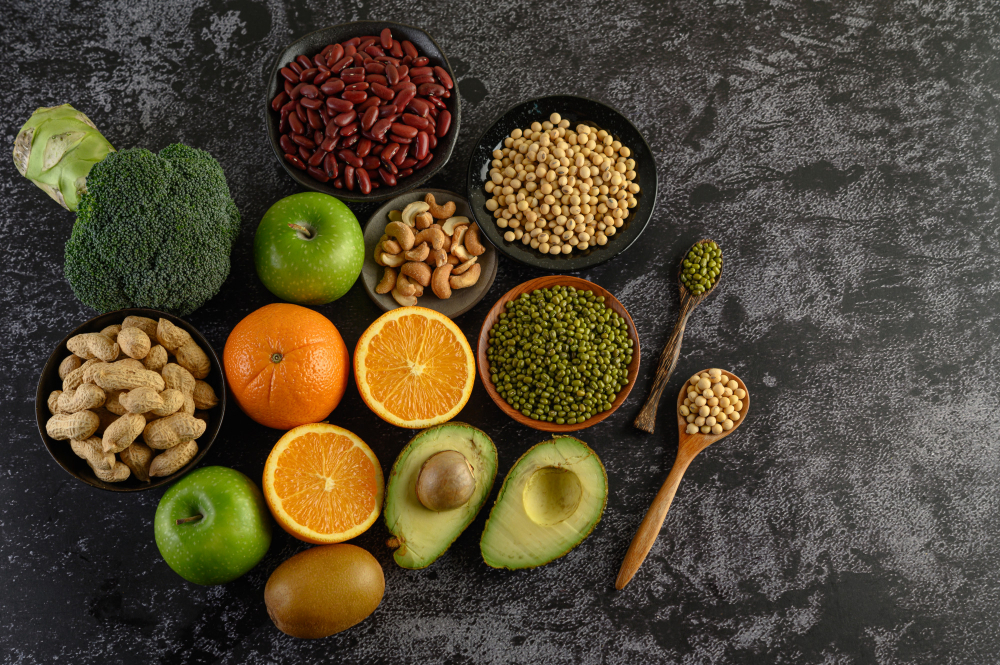
Section 5: Superfoods for Specific Dietary Needs: Vegan, Vegetarian, and Gluten-Free Options
Plant-Powered Superfoods: Meeting Performance and Immunity Goals on a Vegan Diet
Vegans can harness the power of superfoods to meet their performance and immunity goals without compromising their dietary choices. Foods such as lentils, chickpeas, and tofu provide ample protein, while leafy greens, nuts, and seeds offer a rich source of essential nutrients. With thoughtful meal planning, vegans can enjoy optimal performance and immune support with plant-powered superfoods.
Superfoods for Vegetarians: Balancing Nutritional Needs for Peak Performance
For vegetarians, superfoods offer a diverse range of options to meet their nutritional requirements for peak performance. By incorporating dairy products, eggs, and plant-based proteins like quinoa and legumes, vegetarians can create balanced and nutritious meals that promote both physical excellence and immune resilience.
Gluten-Free Superfoods: Boosting Immune Health without Gluten
Individuals with gluten sensitivities or celiac disease can still enjoy the benefits of superfoods while adhering to a gluten-free diet. Gluten-free grains like quinoa and brown rice, along with an assortment of fruits, vegetables, and nuts, offer a wide array of nutrients and support a healthy immune system without any gluten-related complications.
Section 6: Debunking Superfood Myths: Separating Fact from Fiction
Superfood Hype: What You Need to Know About Marketing Claims
The term “superfood” has been embraced by marketers and health enthusiasts alike, often leading to exaggerated claims and misinformation. It’s essential to approach superfoods with a critical mindset and understand that while they are rich in nutrients, they are not miracle cures. A balanced diet that includes a variety of whole foods remains the cornerstone of good health.
The Power of a Balanced Diet: Understanding the Role of Superfoods in Context
While superfoods offer an array of health benefits, it’s crucial to remember that they are most effective when incorporated into a well-rounded and balanced diet. They complement other nutrient-dense foods and contribute to overall health and vitality. Emphasizing diversity in the diet ensures that the body receives all essential nutrients for optimal performance and immune function.
The Key to Sustainable Health: Emphasizing Variety and Whole Foods
The true power of superfoods lies in their ability to enhance health and well-being when combined with a diverse range of whole foods. Relying solely on a few superfoods may lead to nutrient imbalances and fail to provide the full spectrum of vitamins and minerals required for optimal health. Embrace a varied and wholesome diet that incorporates a wide array of nutrient-rich foods to achieve sustainable health and vitality.
Conclusion
Embracing the Superfood Advantage: A Pathway to Enhanced Performance and Immune Resilience
The impact of superfoods on enhancing physical performance and immune function is undeniably significant. By understanding their unique properties and incorporating them into our diets, we can unlock their full potential to elevate our well-being and reach new heights of performance. From chia seeds to turmeric, each superfood plays a crucial role in nourishing our bodies and empowering us to lead healthier and more fulfilling lives.
Elevating Your Health Journey with the Right Superfoods
As we navigate the complexities of modern life, our health should remain a top priority. Superfoods provide a natural and sustainable way to optimize our performance, protect our immune systems, and achieve overall vitality. By making mindful choices and embracing the power of superfoods, we can embark on a transformative health journey that brings us closer to our goals and aspirations.
Empowering Your Body and Mind with the Nutritional Powerhouses
The human body is a remarkable machine, capable of incredible feats when fueled with the right nutrients. Superfoods serve as nutritional powerhouses, supplying the essential building blocks for our physical and mental well-being. By incorporating these remarkable foods into our daily lives, we can unleash our full potential and live life to the fullest, with enhanced performance and unwavering immune resilience.

